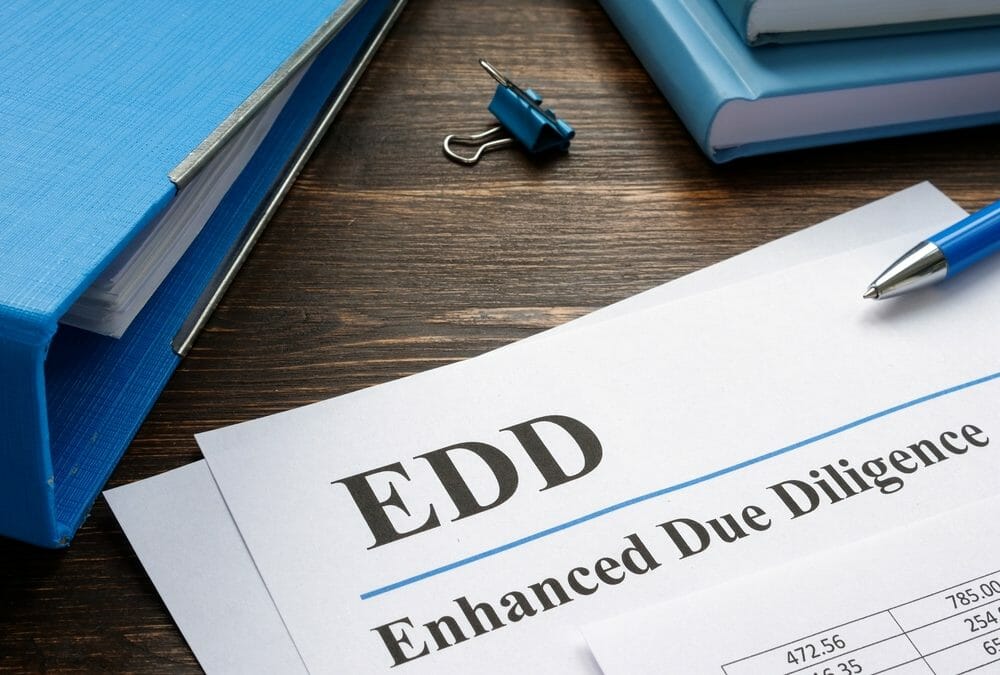The FATF Travel Rule poses a significant challenge for VASPs using Layer 2 solutions like the Lightning Network due to transaction anonymity and off-chain processing. iComply offers a holistic AML compliance solution, including KYB software, AI-driven monitoring, and industry leading Travel Rule compliance expertise, to help VASPs navigate these challenges seamlessly.
Comprehensive Checklist for Implementing an Integrated Compliance Solution
The Comprehensive Guide to Adverse Media Monitoring
Interview with Matthew Unger, CEO of iComply, on Financial Crime Prevention and Deep Fake Prevention

How to Implement Automated KYC Verification for Your Business
In today’s fast-paced digital world, navigating the complex regulatory landscape can be a challenge for financial institutions and businesses. One critical aspect of compliance is Know Your Customer (KYC) verification. Manual KYC processes can be time-consuming, prone to errors, and inefficient. Thankfully, automated KYC verification offers a streamlined approach, enhancing accuracy and improving the overall customer experience. Let’s walk through the steps to effectively implement automated KYC verification for your business.
Understanding the Importance of KYC Verification
Before diving into automation, it’s crucial to understand why KYC verification matters:
- Regulatory Compliance: Ensures adherence to AML (Anti-Money Laundering) and CTF (Counter-Terrorism Financing) regulations.
- Fraud Prevention: Helps prevent identity theft and financial fraud.
- Customer Trust: Boosts customer confidence by ensuring secure and reliable verification processes.
Assess Your Current KYC Process
Evaluate your current KYC process to identify pain points:
- How long does it take to verify a customer’s identity?
- What’s the error rate in manual verifications?
- Are customers satisfied with the current process?
Choose the Right KYC Software Solution
Selecting the right software is key to successful automation. Look for solutions that offer:
- Comprehensive Identity Verification: Features like document verification, biometric authentication, and facial recognition.
- Real-Time Monitoring: Continuous monitoring and instant alerts for any suspicious activities.
- Data Security: Secure data storage compliant with data protection regulations.
- Customization: The ability to tailor the solution to meet specific regulatory and business needs.
Integrate KYC Software with Your Existing Systems
Ensure the new KYC software integrates seamlessly with your existing systems:
- API Integration: Connect the KYC software with your CRM, banking systems, or other relevant platforms.
- Data Migration: Securely transfer existing customer data to the new system.
- Testing: Conduct thorough tests to ensure everything works smoothly.
Automate Identity Verification Processes
With the software in place, focus on automating core KYC processes:
- Document Verification: Use OCR (Optical Character Recognition) technology to automatically scan and verify identity documents.
- Biometric Authentication: Implement biometric verification, such as fingerprint or facial recognition, to enhance security.
- Liveness Detection: Ensure the system can distinguish between a live person and a photo or video spoof.
Implement Real-Time Monitoring and Alerts
Real-time monitoring is essential for managing risks effectively. Set up your system to:
- Monitor Transactions: Keep an eye on customer transactions for any suspicious activities.
- Generate Alerts: Automatically flag any anomalies or potential risks.
- Automate Reporting: Create automated reports for regulatory compliance and internal audits.
Train Your Team
Ensure your team is comfortable with the new system through comprehensive training:
- System Features: Familiarize everyone with the software’s features and functionalities.
- Best Practices: Educate staff on the best ways to use the system efficiently.
- Troubleshooting: Provide guidance on resolving common issues.
Monitor and Optimize the System
Continuously monitor the system’s performance and make necessary adjustments:
- Performance Metrics: Track KPIs such as verification time, error rates, and customer satisfaction.
- Feedback Loop: Collect feedback from users and customers to identify areas for improvement.
- Regular Updates: Keep the system updated with the latest security patches and compliance requirements.
Best Practices for Automated KYC Verification
- Prioritize Data Security: Ensure robust data encryption and compliance with regulations like GDPR and CCPA.
- Maintain Transparency: Keep customers informed about how their data is used and secured.
- Regular Audits: Conduct regular audits to ensure the system’s integrity and compliance.
- Customer Support: Provide excellent customer support to assist with any issues during the verification process.
Automating KYC verification can streamline your compliance processes and enhance customer trust. By understanding your current process, choosing the right software, integrating it seamlessly, and continuously monitoring and optimizing, you can create an efficient and secure KYC verification system. At iComply, we are committed to making compliance easier, more efficient, and more secure. Our platform offers seamless integration, advanced security features, and customizable tools tailored to your specific needs.
Interested in transforming your KYC processes? Explore iComply’s automated KYC verification solutions today. We’re here to help you navigate the complexities of compliance with confidence and ease. Contact us now to learn more and schedule a demo. Embrace the future of compliance with iComply and keep your business ahead in the competitive financial landscape.

Regtech Terms 101: Definitions Made Simple
Regtech Terms 101: Definitions Made Simple
If you’re in the process of implementing or revising your money laundering and financial crime protocols, you’ve no doubt come across the many terms and acronyms associated with financial regulations. As fintech and related financial crime mandates continue to evolve, many teams find it difficult to stay on top of new terms, entities, and other relevant organizations you need to know.
At iComply, we’re honored to help you build transparency with your own clients and gain access to a range of trusted resources to stay compliant with jurisdictional guidelines, as well as protect your organization when it matters most. As an innovative provider of an award-winning Know Your Customer-focused suite of modular software, our team is here to make sure you’re able to stay in the know when it matters most.
Below, we’ll cover the 10 most common terms found within the fintech and financial regulation technology (regtech) markets. Read on to learn more!
Anti-Money Laundering (AML)
Money laundering is one of the biggest threats to today’s global market, with an estimated USD $800 million to $2 billion being laundered each year. Anti-Money Laundering (AML) legislation and regulation play an important role in safeguarding both businesses and their customers against fraudsters, as well as limiting the negative effects of common financial and asset-based crimes such as terrorist funding, human trafficking, the drug trade, and much more.
AML regulations hold banks and other financial institutions that issue credit or deposit accounts to specific standards in an effort to prevent money-laundering activities through these types of accounts.
API
Within the fintech industry, you will often come across the term “API”, which is short for Application Program Interface. APIs are digital tools that enable different disconnected computer programs to talk to one another and—in the case of KYC protocols—share customer due diligence data and documents with greater simplicity, reliability, and accuracy.
CDD/EDD
Customer Due Diligence (CDD) and Enhanced Due Diligence (EDD) refer to the building of customer risk profiles based on key information gathered during onboarding. The ultimate goal of CDD is to identify customers and their current and historical financial activity, generate a customer risk profile, and assess all relevant information with basic CDD, Enhanced Due Diligence (EDD), or Simplified Due Diligence (SDD) for enhanced transaction monitoring and ongoing risk reporting.
Decentralized Exchange (DEX)
Decentralized Exchanges (DEXs) enable peer-to-peer exchanges of digital securities, cryptocurrencies, and other virtual assets without the need for a centralized fail-safe like those required by a banking institution. Decentralized exchanges are often in the news with cryptocurrency-related matters. With no third party involved in the handling of funds, monitoring transactions for fraud risk can be difficult but essential for preventing financial crime.
False Positives
False positives refer to any test results that incorrectly flag a user or incident for a nonexistent violation. As one of the biggest hurdles for identity verification and KYC programs to overcome, false positives are a key regtech term to learn. Even the most refined anti-fraud software will still occasionally produce a false positive. With the right verification protocols in place, well-executed AML and KYC practices will be able to catch false positives and quickly rectify the situation.
GIFCS
The Group of International Finance Centre Supervisors (GIFCS) is a long-established group of financial services supervisors that are focused on promoting the adoption of international regulatory standards—especially in the banking, securities, fiduciary, and AML/CFT sectors. The GIFCS represents the interest of its jurisdictional members for various banking matters under the umbrella of funds and securities activities.
Know Your Customer (KYC)
Know Your Customer (KYC) is a mandatory information gathering and screening procedure that businesses and financial institutions must follow in order to properly verify the identity of new and existing clients. KYC standards apply outside financial services and encompass any business where money laundering or terrorist financing risk exists.
Security Token
A security token refers to either a physical or digital device that allows an individual to provide two-factor identification and verify their identity when logging into a service online.
Travel Rule
The Travel Rule, also known as FATF’s Recommendation 16, refers to stipulations placed on monetary and virtual asset exchanges occurring on decentralized exchanges such as the cryptocurrency market. This recommendation seeks to add additional information to transactions to sufficiently identify the originator as well as the beneficiary.
Virtual Asset
Virtual Asset refers to any digital or non-tangible asset that can be assigned a monetary value and exchanged as currency or used for investment purposes.
——————————————————————————
Stay in the Know with iComplyKYC
Curious to learn more key terms relevant to the fintech and regtech markets? Take a look through our glossary of current terms and acronyms on our site here.
At iComply, we know that staying on top of fraud can be tough. That’s why we’re proud to offer a truly end-to-end KYC solution for businesses and institutions across North America and Europe. Designed with ease of use and seamless integration with your existing workflows, iComplyKYC makes financial compliance simple and streamlined.
Discover how we do it by talking to our team today and booking a demo of our modular KYC platform solutions.
learn more
Is your AML compliance too expensive, time-consuming, or ineffective?
iComply enables financial services providers to reduce costs, risk, and complexity and improve staff capacity, effectiveness, and customer experience.
Request a demo today.
The Travel Rule Challenge on Layer 2 Solutions: How iComply Helps VASPs Navigate AML Compliance
How Law Firms Can Build Client Trust with Seamless Compliance
Reimagine Compliance: Build Trust, Not Friction
Transform compliance from a hurdle into an opportunity. Streamline KYC/AML processes, enhance client experience, and elevate your firm’s reputation with iComply’s comprehensive solution.
New FinCEN Geolocation Rules: How iComply’s Latest Update Keeps You Ahead
FinCEN’s New Geolocation Rules: How iComply Can Help
Stay ahead of FinCEN’s stricter KYC requirements with iComply’s advanced geolocation and biometric verification technology. Enhance compliance, prevent fraud, and maintain a seamless user experience.











